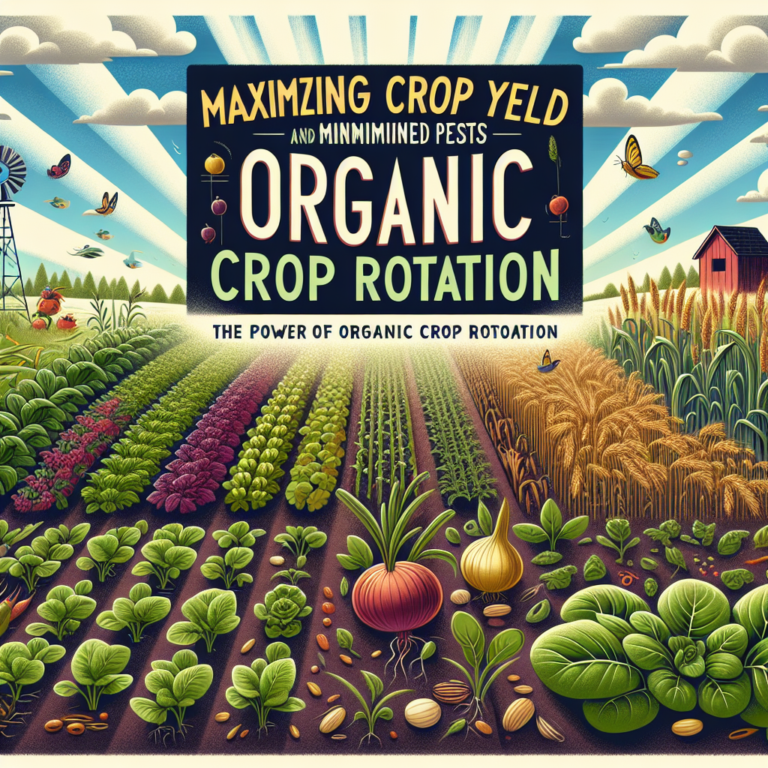Crop rotation is a time-tested farming practice that involves planting different crops in the same field in successive seasons. This technique has been used for centuries to maximize crop yield, prevent soil erosion, and minimize pests and diseases. Organic crop rotation takes this practice a step further by using only natural methods to maintain soil fertility and control pests, without the use of synthetic chemicals.
Organic crop rotation is based on the principle of diversity. By planting a variety of crops in a rotation sequence, farmers can improve soil structure, fertility, and health. Different crops have different nutrient needs and growth patterns, so rotating crops helps balance the nutrients in the soil and reduce the risk of pests and diseases. For example, legumes like peas and beans are known for their ability to fix nitrogen in the soil, which can benefit the following crop that requires a lot of nitrogen, such as corn or wheat.
One of the key benefits of organic crop rotation is its ability to naturally control pests and diseases. When the same crop is grown in the same field year after year, pests and diseases that target that specific crop can build up in the soil, leading to decreased yield and the need for chemical pesticides. By rotating crops, farmers can disrupt the life cycles of pests and diseases, reducing their numbers and preventing outbreaks. In addition, planting certain crops together can create a natural barrier against pests, as certain plants have companion planting properties that repel or confuse pests.
Organic crop rotation also helps to conserve and improve soil health. By rotating crops, farmers can prevent soil erosion, improve soil structure, and increase soil fertility. Different crops have different root systems, which can help break up compacted soil and improve drainage. In addition, rotating crops can help build up organic matter in the soil, which improves soil fertility, water retention, and microbial activity.
To effectively implement organic crop rotation, farmers should carefully plan their crop rotations based on the specific needs of each crop, the soil conditions, and the climate. Farmers should also pay attention to crop residue management, cover cropping, and crop rotation timing to maximize the benefits of the rotation. By implementing organic crop rotation practices, farmers can improve crop yield, minimize pests and diseases, and maintain a healthy and sustainable farming operation.
